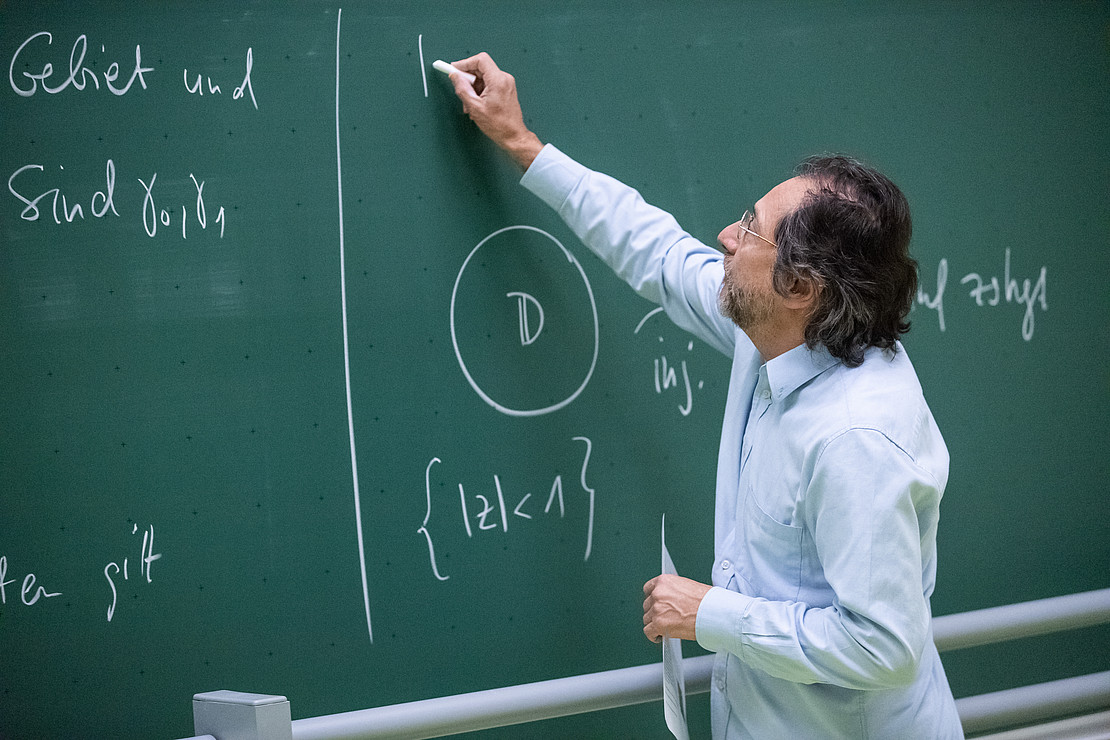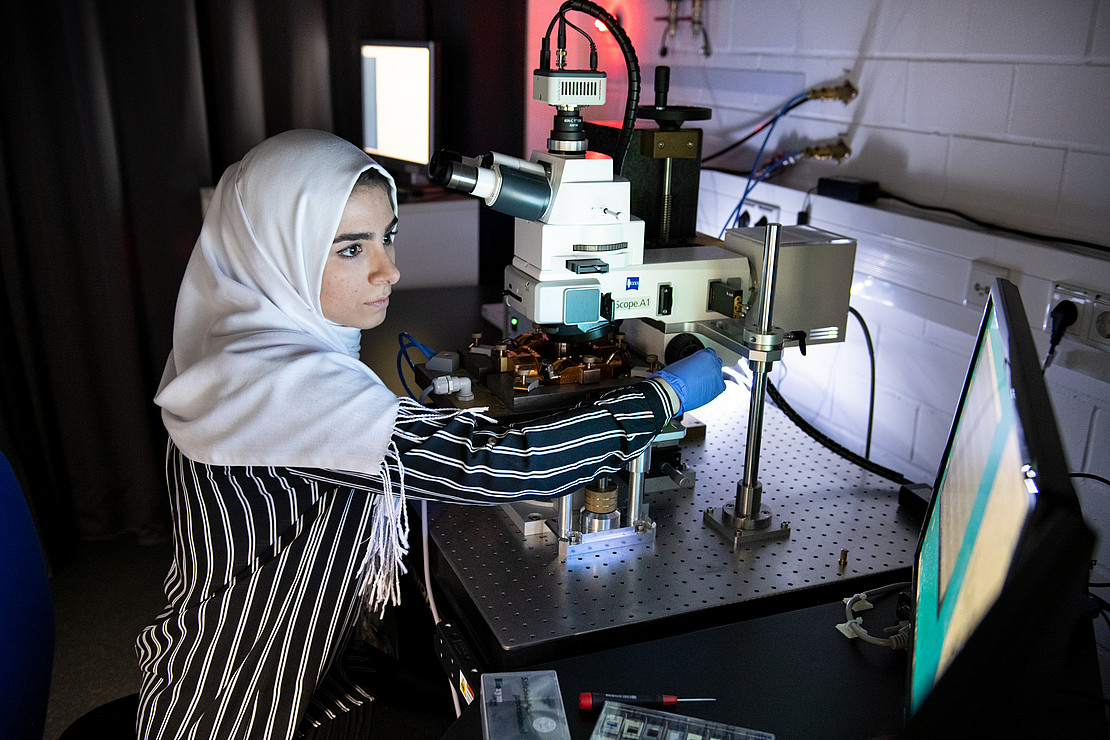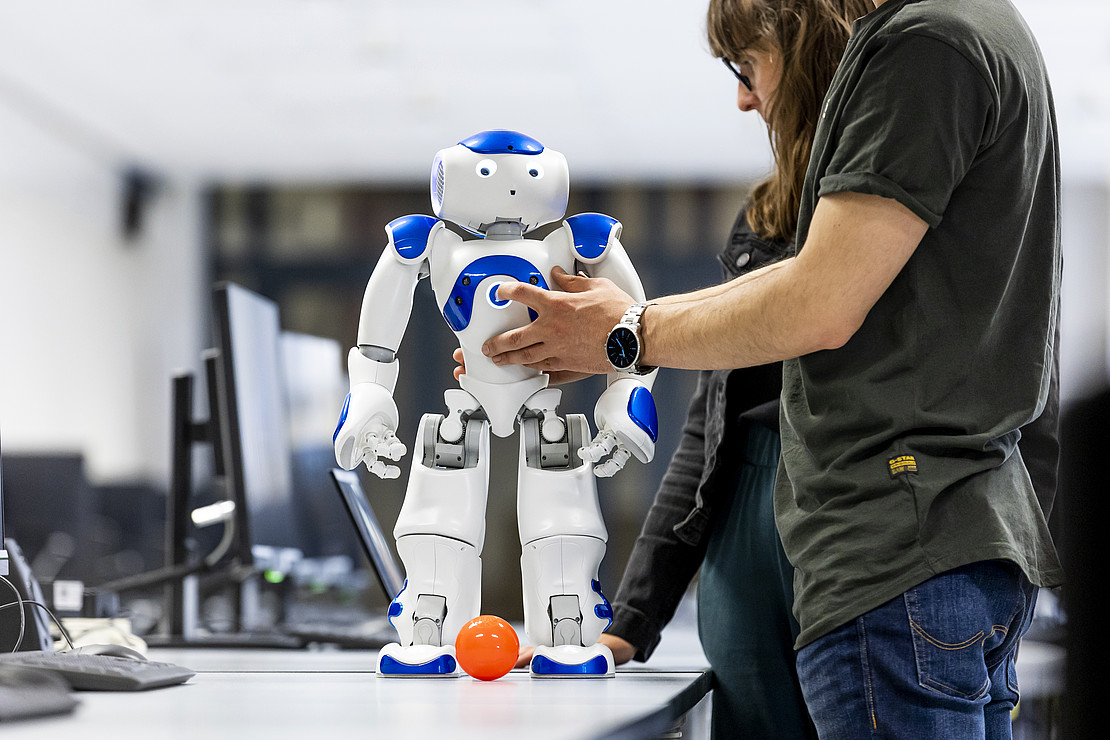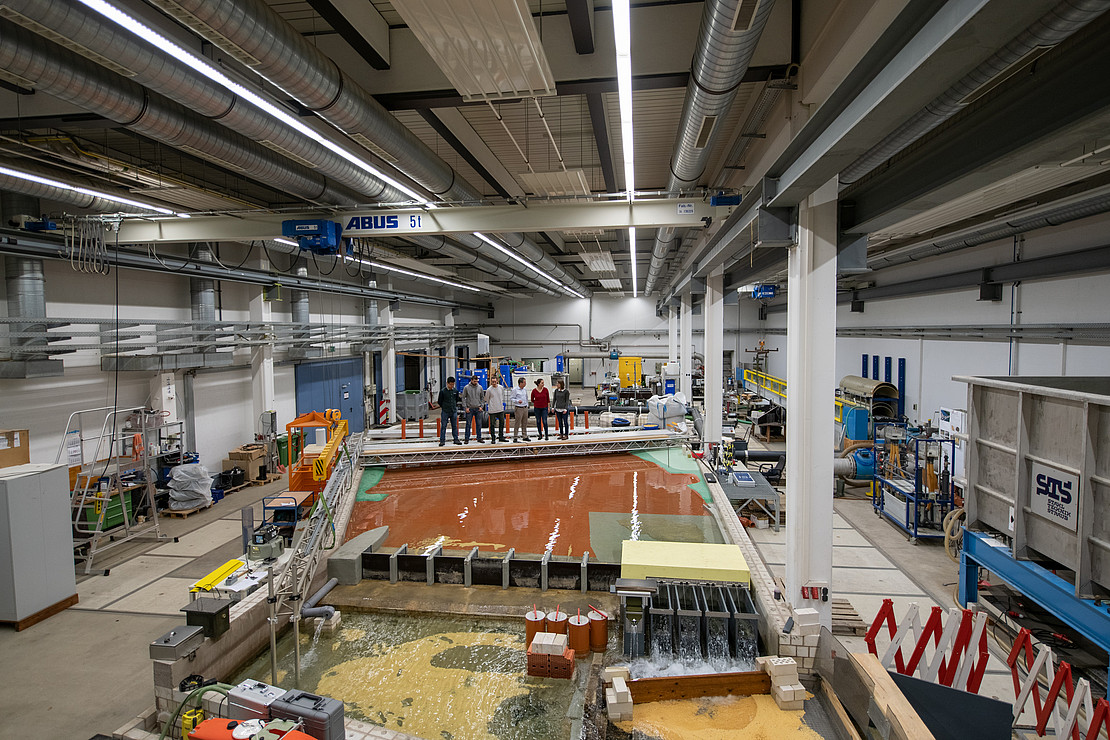This page contains automatically translated content.
plusMINT | Two students report on their experiences in orientation studies
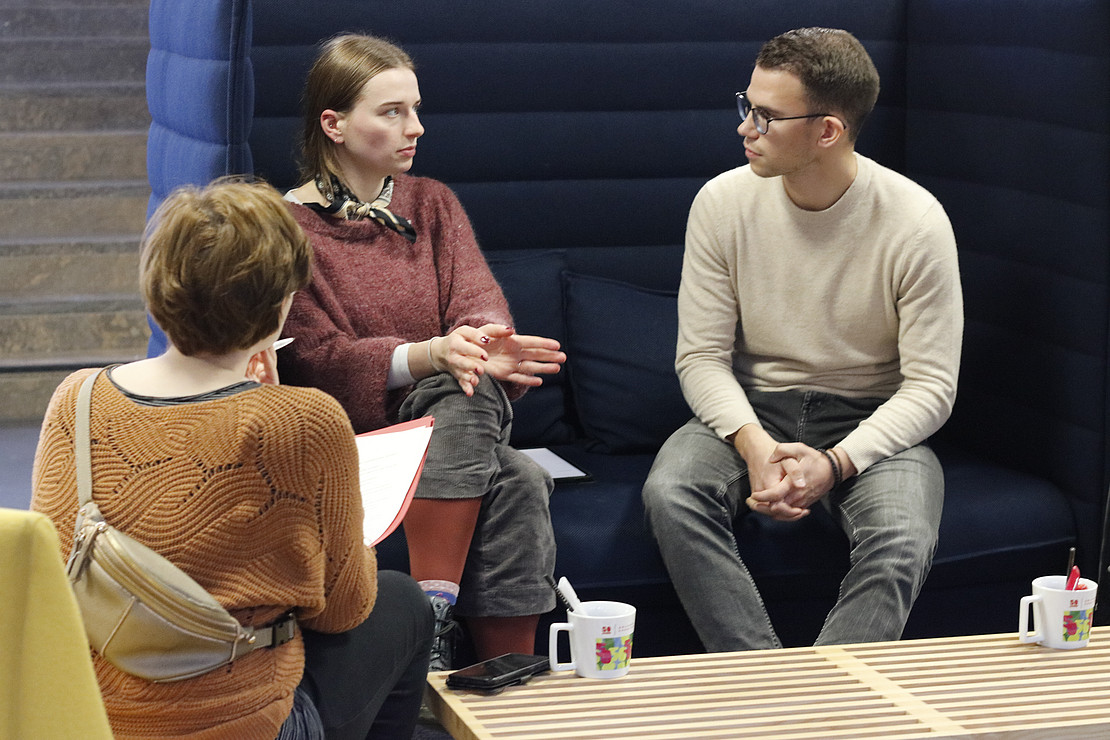 Image: Vanessa laspe
Image: Vanessa laspe"We are just all-rounders"
Germany is losing STEM students, the Federal Statistical Office found at the end of January. Hannah Glatzel and Philipp Krug are studying plusMINT, a program that facilitates entry into STEM subjects (mathematics, computer science, natural sciences, technology). Philipp did an apprenticeship as a lab technician before going to college and worked for a year. Hannah started her studies directly after school. In the interview, the two recall their start and talk about the special features of the study program.
You are both now in your 7th semester of environmental engineering in the plusMINT program. What appeals to you about your studies?
Hannah Glatzel: Right now you hear so much about climate change and environmental disasters. The fact that I can work on comprehensive technical solutions instead of just trying to change everyone's actions motivates me.
Philipp Krug: I find the connection between technology and the environment and the interdisciplinary nature of the course very exciting. We are all-rounders. We can't build huge bridges, but we can analyze everything that's connected with them.
You were in the first class of the then newly introduced plusMINT program. What was it like for you to arrive at your studies?
Philipp: At the time, there were only 30 of us in many courses, which felt like being in a school class. We were taken by the hand and given intensive support. At the first two meetings, for example, there were three coordinators who went through the schedule with us.
Hannah: I thought that was great and I also had the impression that you lose your respect for the lecturers. I also quickly had a good relationship with the other students.
Have you stayed in contact with students who have chosen other majors?
Philipp: You already develop a network through the plus STEM studies, which gives you some advantages during your studies. Mechanical engineering, civil engineering and environmental engineering share a location, so we are naturally all the more in contact with students from these subjects.
Hannah: Philipp and I found a group of friends together that still exists today. I have to say, though, that my close friends all chose environmental engineering as well.
There is a lecture series as part of the plusMINT program in which companies present themselves and their fields. What was that like for you?
Hannah: Especially the subjects mathematics, mechanical engineering, electrical engineering and computer science are currently very much in demand at many companies and that was also clearly noticeable. For environmental engineers, there were only a few very specific employers. It was still helpful for me to get to know potential employers.
Philipp: What was cool was the direct contact with the companies. We were able to meet department heads or female engineers who are already on the job. In retrospect, however, I wonder whether the first few semesters are the right time for this. In the meantime, I know more about what I can do and where I want to go, so the topic of career orientation is much more relevant to me.
How did the mentoring work for you?
Hannah: First, we selected the professional direction in which we would like to orient ourselves, and then we were assigned a corresponding person from the university. Unfortunately, because of the Corona semester, our discussions were held via video conference, which is perhaps why I wasn't able to get as much out of it in terms of content. But it still helped me to reduce the distance to the lecturers. You realize: They're just normal people, too.
Philipp: The one-to-one mentoring by a professor intimidated me a bit at the beginning. In the long run, mentoring had a positive influence on my relationship with my mentor, Professor Niendorf; I still prefer to go to his courses when I have the choice.
Math seems to play a big role for all STEM programs at first glance on the homepage. Would you advise someone who is rather mediocre in math to give the program a try?
Philipp: Yes, definitely. In my case, there were two years between my last math class at school and my studies. Before I started studying, I was pretty worried about whether I would be able to do it. And I have to say that the advanced math course prepared me really well and took away my fears.
Hannah: I would actually recommend the advanced course to anyone taking plusMINT. I was always quite good at math, but there were a few things I didn't understand at school. In the course, it was suddenly quite logical because it was explained differently.
Are there any other prerequisites for studying that you think you should have?
Hannah: Definitely a great interest in the natural sciences, that's for sure. In environmental engineering, I would also advise learning about political developments in the areas of nature conservation and climate change. This is referred to in many courses.
Philipp: Basic requirements are also a high level of commitment and resilience. Especially in engineering courses, there are intensive phases of exams. The first weeks of your studies are also pretty tough.
Do you have any tips for people starting the plusMINT program?
Hannah: Make sure you make friends in your first semester. That's much more important in the beginning than any credits. I imagine it will be very difficult to meet people later on when the workload has increased.
Philipp: I see it the same way. Other than that: Find your own learning strategy! I realized at some point that it's more effective for me to do exercises than to sit in lectures. So I try to organize my studies accordingly. I also recommend applying for a HiWi position. That's incredibly valuable for making contacts and learning more about scientific work.
Hannah: Oh yeah, that's great! You get paid to learn something. You really don't have to worry about not being good enough. If you have the chance, you should definitely apply.
Graduation is not too far away. What are your plans for after graduation?
Hannah: After my bachelor's degree, I would like to start my master's. In the long run, I might want to work in research. But I don't have any concrete plans yet, except that I would like to get to know a city other than Kassel.
Philipp: Before, I couldn't imagine working at the university. But my HiWi position changed that, and now I perceive research in a much more positive way. So maybe that would be something for me. But first I would like to do a master's degree.
This article appeared in the university magazine publik 2023/1. Interview: Maya Burkhardt
